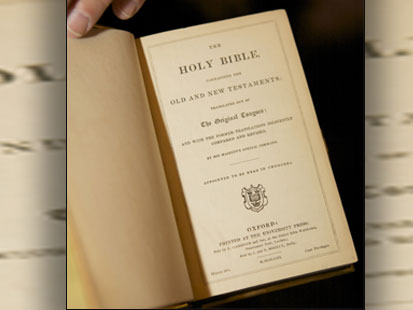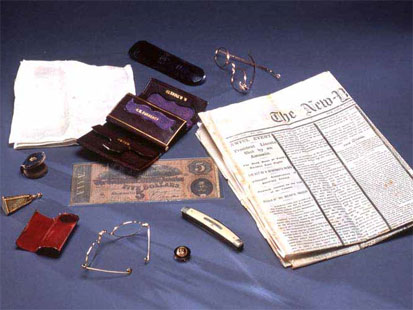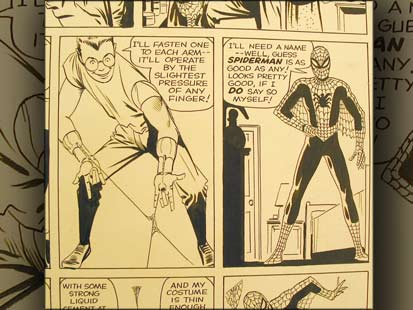Nation's Library Celebrates Lincoln's 200th Birthday
Recipes from the 2009 inauguration lunch and Mary Todd Lincoln's apple cake.
Jan. 19, 2009 — -- When Barack Obama on Tuesday places his hand on the same Bible Abraham Lincoln used for his March 1861 inauguration, not only will the 44th president be paying homage to his Illinois predecessor, but also, in a small way, the Library of Congress.
It's the home of the historic book and also where some of Obama's papers likely will land one day, as the 209-year-old federal institution compiles and records the cultural and creative history of Americans.

With such rich history housed inside its walls, the Library of Congress was a fitting venue for "Good Morning America" to broadcast its inaugural coverage on Monday and Tuesday.
The show will use the intricately constructed Great Hall and some of the reading rooms for its broadcasts.
Celebrating Abraham Lincoln
Some of the nation's and world's top treasures lie in the Library of Congress, including two drafts of Lincoln's Gettysburg address as well as the one he used on Nov. 16, 1863.
A special exhibit celebrating the 16th president's 200th birthday begins on Feb. 12 at the Library of Congress.
"We have a vast Lincoln collection," said Library of Congress communications director Matt Raymond.
The collection includes more than 200 rarely displayed items that offer a very personal glimpse into the life of the frontiersman who had only one year of formal education.
Among the items on display will be a grammar book that Lincoln, at the age of 21, walked miles to borrow from an Illinois farmer so he could truly master English, as well as the letter 11-year-old Grace Bedell wrote to Lincoln suggesting more people would vote for him if he let his whiskers grow.
The Library of Congress also has the contents of Lincoln's pockets from the day John Wilkes Booth shot him in Ford's Theater.

But much of library's collections pre-date anything Lincolnesque by decades and centuries.
"We have the papers of 23 presidents — from George Washington to Calvin Coolidge," Raymond said.
The library also includes the original Declaration of Independence including edits by Ben Franklin and John Adams; George Washington's copy of the Constitution and the original Bill of Rights.
But the Library of Congress isn't just dedicated to historic relics from eras past. It's an active and functional library which always is looking for and storing current material.
"We get about 22,000 items a day. We keep about 10,000 of those," said Raymond, who added that curators decide what stays and what goes. "The size and the scope of our collection is really quite astounding. "
Beyond Politics

One of the most photographed items in the library is the first comic book in which Spiderman appeared. Comic icon Stan Lee's web-slinging crusader first appeared in "Amazing Fantasy #15," which began a decades-long obsession with Peter Parker and his alter ego that would spawn a successful comic book series, toys and several blockbuster movies.
The library made the big get in April 2008, and since then tourists seem drawn to the first drawings of Manhattan's friendly neighborhood Spiderman.
The agency doesn't just focus on American history and culture.
"We collect universally. We collect in every subject, every language on earth," said Raymond. "More than half of our collections are in languages other than English."
As the largest library in the world, the Library of Congress has content in 470 languages among its millions of books and offerings. And while it's a common misconception it has every book every published in the United States, it doesn't, though it does have 650 miles of bookshelves that hold more than 32 million titles.
The History
Initially, $5,000 was appropriated for the Library of Congress, which had about 700 volumes that mostly consisted of legal books.
"It was a very kind of narrow specific focus and then that collection had," Raymond said.
But when the British burned the Capitol during the War of 1812, they also destroyed the Library of Congress and used its books as kindling.
Thomas Jefferson later sold his book collection to re-establish the Library of Congress, Raymond said. Since the former president had so many interests, his books varied in topic, and that broadened the library's focus.
The Library and the Digital Age
"While it is Congress' library, it's [Americans'] library too," Raymond said. "It's free and it's open to the public.""It's not just a museum. It's a library where things are coming in all the time," he said.
Though Raymond admitted it's more difficult to chronicle more recent information.
"The more modern technology is the more risk it is to be lost," Raymond said, citing the rapidly changing Internet as an example.
Still the library chronicles Web sites, including many of the government pages in President Bush's final days.
Raymond said they want to have record of the sites before they're changed with the incoming administration.
"We're more about collecting history and culture," he said.